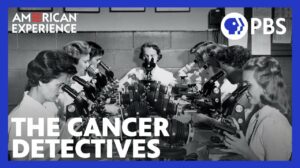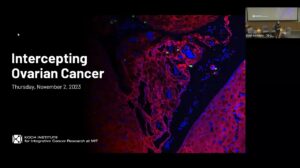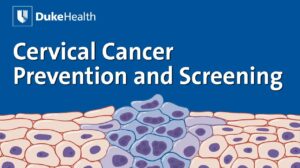NEW YORK (Reuters Health) – In a randomized controlled trial, the anti-CA-125 vaccine abagovomab did not prolong survival in patients with ovarian cancer in first remission — despite promising results in early-phase trials.
“This illustrates the importance of phase III randomized trials in drawing any conclusions regarding efficacy for maintenance approaches,” caution Dr. Paul Sabbatini, at Memorial Sloan-Kettering Cancer Center in New York, New York, and colleagues in their report in the Journal of Clinical Oncology online March 11.
They explain that CA-125 is highly expressed on more than 80% of nonmucinous epithelial ovarian cancers and is a potential therapeutic target. However, inducing a useful immune response against CA-125 is difficult because it is a tolerated self-antigen.
Abagovomab is an anti-idiotypic monoclonal antibody that recognizes the tumor-associated antigen CA-125 and has been shown to induce a specific immune response against the antigen – that is, an anti-anti-idiotypic antibody response, or Ab3. In a phase I/II trial, patents with ovarian cancer who developed an Ab3 response lived longer than those who did not.
For the current study, the team conducted a double-blind phase III trial of abagovomab as maintenance therapy in 888 patients with stage 3 or 4 epithelial ovarian cancer in complete remission after surgery and chemotherapy. They were given 2 mg abagovomab or placebo every 2 weeks for 6 weeks, then once every 4 weeks for up to 21 months.
The immune response in the active treatment arm was robust, the researchers report, with a median Ab3 level of 493,000 ng/mL by the final visit.
However, recurrence-free and overall survival curves for the two arms of the study were virtually identical. Specifically, the median time to recurrence was 403 days in the abagovomab group and 402 days in the placebo group, according to the report. Similarly, the overall survival rate at 2 years was 80% in both groups.
The results are similar to those seen with oregovomab, a monoclonal antibody specific for CA-125, Dr. Sabbatini and colleagues comment. However, they write, “Although neither antibody-directed approach showed a survival improvement, much interest remains in considering CA-125 (MUC16) as one viable target for future studies with other effectors.”
They conclude, “Exploring multiple targets simultaneously in addition to CA-125 (MUC16) for immunotherapy, exploiting other effectors, and combining these approaches with immunomodulatory efforts directed toward CTLA4 or PDL1 remain reasonable approaches to try and improve outcome for patients with ovarian cancer.”
SOURCE: Abagovomab As Maintenance Therapy in Patients With Epithelial Ovarian Cancer: A Phase III Trial of the AGO OVAR, COGI, GINECO, and GEICO—The MIMOSA Study
J Clin Oncol 2013;31.




